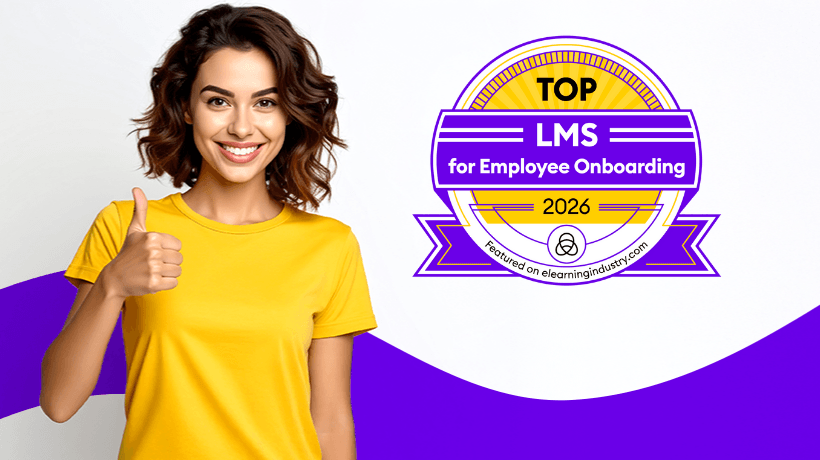Using An LMS In Employee Onboarding
A Learning Management System (LMS) for employee onboarding helps in the onboarding, training, evaluation, and smooth integration of new hires into a company. Employee onboarding is crucial to ensuring they enter their new roles with the most clarity possible and experience the fewest obstacles initially.
Onboarding should be viewed as a chance to get new hires up to speed quickly, provide them with the knowledge they need right away, and give them a timeline of what to anticipate during the initial stages of their employment. Regular staff onboarding operations are conducted in sectors with high attrition rates. It is ineffective to spend important resources like time, money, and effort in continuously training people.
Onboarding new recruits can be an excruciating and time-consuming process. Without adequate preparation and execution, it loses its effectiveness. Improper implementation of employee onboarding may lead to difficulties in coping with the work environment or culture.
If the newly hired staff aren't appropriately trained, it will likely affect the business. It may result in significant stress and financial loss. There is a possibility that the new employees might not even pass the compliance training process if the onboarding training is inefficient. It could also lead to demotivation and impact employee retention.
An onboarding training program, however, may prepare new hires for a smooth and solid start to their new work, provided it is organized and carried out correctly. Building rapport and trust with new hires is facilitated by an eLearning management system's onboarding procedure. It endows individuals with the wisdom, ability, and bravery they need to perform their best. It aids in raising staff productivity and fostering a positive perception of the company. The easiest way to overhaul employee training at your company is to use a corporate LMS to carry out the procedure.
What Does An Employee Onboarding LMS Mean?
A Learning Management System is a software as a service (SaaS) that enables you to create, manage, and deliver digital training to your staff. A corporate LMS makes it simple to develop several courses, upload learning materials in various multimedia formats, administer exams, evaluate learners' progress, and assess the general performance of your staff. This improves the speed, effectiveness, cost-effectiveness, accessibility, and manageability of virtual staff training.
What Are The Uses Of An Onboarding LMS?
Employee Learning Management Systems are used for more than just onboarding. The uses of an onboarding LMS are listed below:
1. Cost-Effective
You can easily produce and distribute the training course content for no cost, as opposed to paying more than your budget for trainers, a location, transportation, and other resources to conduct staff training.
2. Provides Prior Knowledge
Finding a new job is never easy. Additionally, there is always a ton of information to research before starting a project. A company's mission statement, core values, job descriptions, and instructions on how to utilize its software are all saved and shared in an enterprise Learning Management System.
3. Create A Company Culture
Statistics show that 68% of workers who had a top-notch onboarding experience were more likely to stay with the company for three years or longer. Additionally, the company's onboarding strategy is always a part of the corporate culture and presents a chance to make a good impression on a new team member.
4. Immediate Evaluation Of Latest Hires
The sooner a company realizes that choosing to recruit a specific individual may not have been the best move, the less it will cost to locate a replacement. Quick evaluations of a new hire's performance, development, and overall potential enable better strategic human resource management choices.
5. Tracking And Reporting
These are crucial LMS capabilities that slightly overlap with the prior point, but with comprehensive reporting and analytics, the business can stay constantly informed on its employees' capacity for learning and their ability to deal with new material, and then HR can put that knowledge to use in practice.
6. Targeted Training
A Learning Management System can be used to design specialized, focused courses that individually contain the knowledge required for upskilling staff, whether they are new hires or seasoned pros.
Bottomline
After employee onboarding, an enterprise LMS can be utilized. The HR processes are simple to adapt to digital format. Utilizing the LMS platform, you can upload and provide newly hired staff with all the essential paperwork and data. The LMS enables employees to easily access a variety of onboarding documents, including rules and regulations, guidelines, employee handbooks, writing templates, and more.







